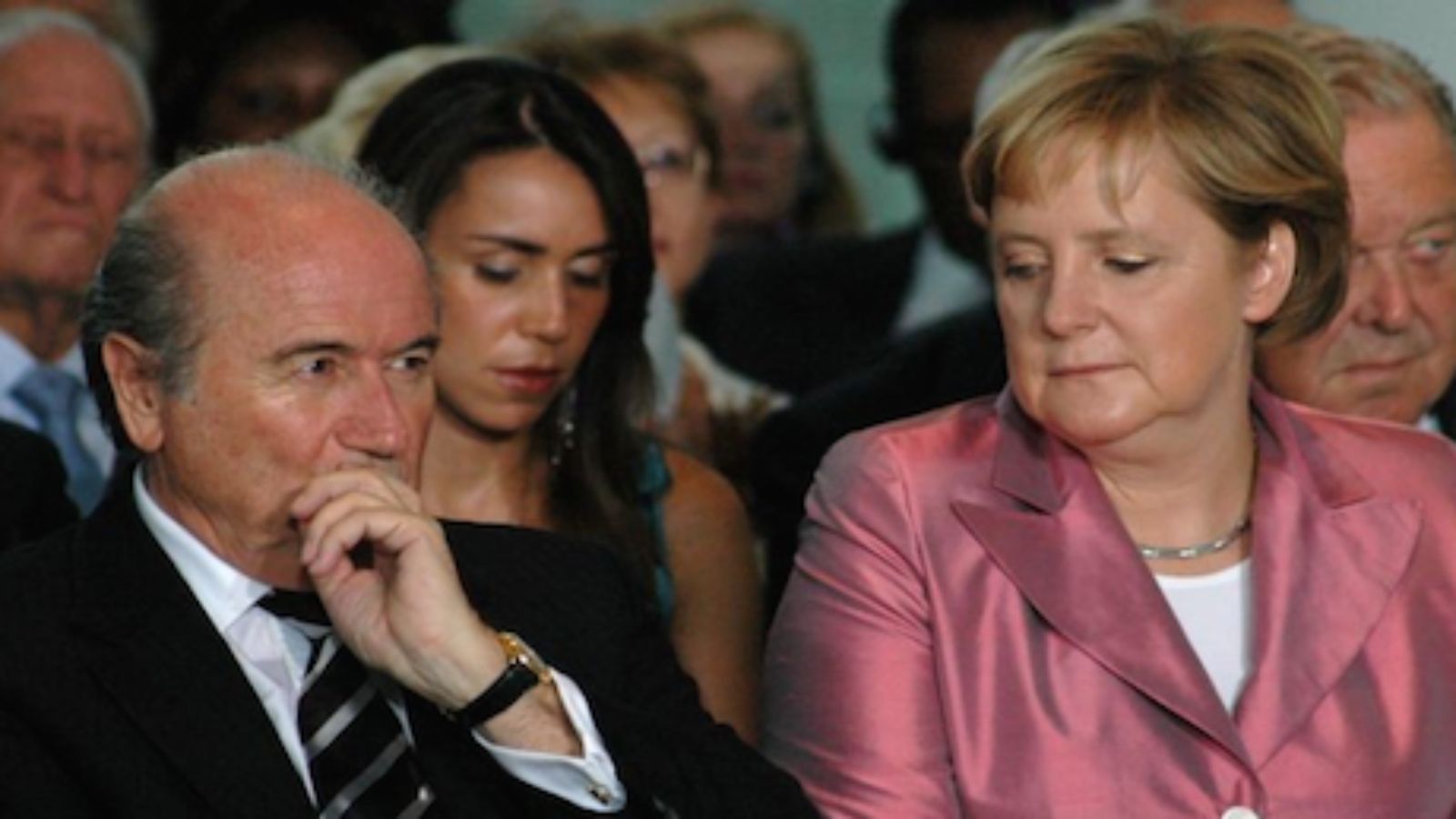This article was originally published by Fair Observer.
By James Dorsey
Embattled FIFA President Sepp Blatter unwittingly put his finger on two fundamental issues that underlie a corruption scandal that has rocked world soccer governance: the fiction that sports and politics are separate, and hypocrisy that distorts legitimate debate about Qatar’s successful but controversial World Cup bid.
Speaking to German newspaper Die Welt am Sonntag, Blatter asserted that the French and German governments had pressured their national soccer federations to vote in favor of the Qatari bid. His self-serving remarks were likely intended to deflect responsibility as authorities investigate his controversial stewardship of FIFA.
Nonetheless, in doing so, Blatter implicitly admitted that the notion of international sports federations being separate from politics was fiction — a fiction that has allowed the federations to play politics with impunity.
Blatter hypocritically disavowed responsibility for sub-standard conditions of migrant workers in Qatar, despite FIFA’s self-declared “humanitarian values” and mission “to improve the lives of young people and their surrounding communities, to reduce the negative impact of our activities and to make the most we can of the positives.”
The FIFA president noted that German companies had employed migrant labor in Qatar on the same terms that have become a major issue since the awarding of the World Cup long before the Gulf state had moved into the firing line of human rights and trade union activists, as well as Western critics of the FIFA decision.
“Look at the German companies! Deutsche Bahn, Hochtief and many more had projects in Qatar even before the World Cup was awarded,” Blatter said, referring to German railways and a major construction company.
In effect, Blatter was laying bare an attitude expressed explicitly by his equally embattled general secretary, Jerome Valcke, that FIFA prefers to work with dictatorships. “I will say something which is crazy, but less democracy is sometimes better for organising a World Cup,” Valcke told the BBC in 2013. He added that FIFA expected to have far less problems with the 2018 tournament in Russia than it had with last year’s competition in Brazil that sparked mass protests.
Blatter’s comments have implications both for Swiss and American investigations into soccer corruption that involve the Qatari World Cup bid, as well as the debate about Qatar. Western criticism of Qatar’s labor regime that puts employees at the mercy of their employers is justified, but only gained momentum once opponents of the Qatari bid jumped on the bandwagon.
The fact of the matter is that human rights groups like Amnesty International and Human Rights Watch, alongside Western media that have long — albeit intermittently — reported for decades on abominable labor conditions in Qatar and other Gulf states, were effectively voices lost in the wind until Qatar won its 2022 bid.
That does not absolve Blatter or FIFA of their responsibilities to adhere to the soccer body’s values, particularly at a time that international sports associations are paying increased lip service to human rights. Nor does it give Qatar wiggle room to escape making good on promises to substantially reform, if not abolish, its notorious labor kafala (sponsorship) system.
What it does do is put the burden of responsibility for a onerous system that has indebted and indentured generations of migrant workers as much on Western governments and corporations as it does on Qatar. It also highlights the need to distinguish in the debate about Qatar between legitimate criticism and opportunistic attacks that are driven by ulterior motives.
Michel Platini and the Three-Way Deal
Blatter’s acknowledgement of the German and French pressure highlights the need for international sports to acknowledge that their ties to politics are intrinsic and need to be embedded in a structure that monitors and governs that relationship. It also underlines the fact that soccer governance’s corruption problems are twofold: financial, the focus of the Swiss and U.S. investigations; and political, a problem that is as much the preserve of democracies as it is of autocracies.
France’s interference was documented two years ago in a lengthy expose in France Football. The magazine detailed a meeting — engineered by then-French President Nicolas Sarkozy — between Michel Platini, a former French star who heads European soccer body UEFA; then-Qatari Crown Prince Sheikh Tamim bin Haman al-Thani, who has since become his country’s ruler; and a representative of French soccer club, Paris Saint-Germain. The three-way deal cut at that meeting involved Platini agreeing to vote for the Qatari bid in exchange for Qatar acquiring the French club, creating a French sports channel, and investing in France.
Platini, a potential candidate to succeed Blatter, who has resigned and is acting as a caretaker until FIFA holds presidential elections sometime between December 2015 and March 2016, has been haunted since by his decision to switch his vote from the United States to Qatar in the crucial 2022 World Cup vote. In a separate interview with Die Welt am Sonntag, Platini suggested that he would not stand as a candidate in the upcoming FIFA election.
German newspaper Die Zeit disclosed in June that Germany had lifted an arms embargo against Saudi Arabia and sold the kingdom arms to persuade the Gulf state to vote for its successful bid to host the 2006 World Cup. The government also persuaded German corporations to invest in Thailand and South Korea as part of its World Cup bid. “Germany’s action may have been legal but it did not quite live up to what is believed to be the spirit of sports,” the newspaper said.
Its understated comment is true for all aspects of the crisis engulfing soccer governance, and it serves as a yardstick for what it will take to put soccer’s house in order.
*****
*****
James Dorsey is a journalist and senior fellow at the S. Rajaratnam School of International Studies at Nanyang University in Singapore.
[Photo courtesy of Fair Observer]